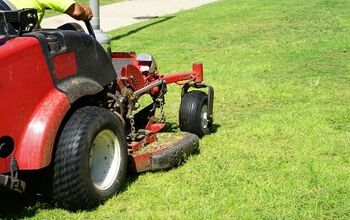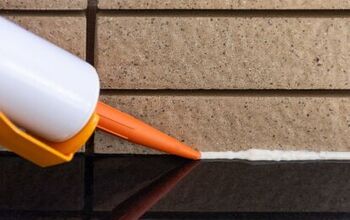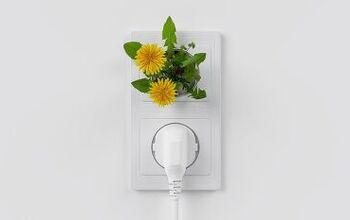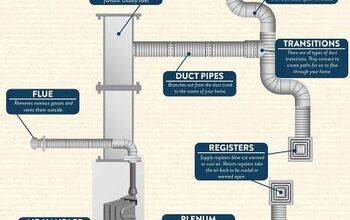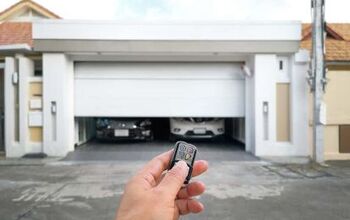What To Do If Your Neighbor Doesn’t Put A Leash On Their Dog

Seeing a dog without a leash can understandably induce anxiety and fear in some people. After all, dogs are instinctively predatorial and sometimes exhibit aggressive behavior toward strangers. You’re not alone if you wonder what to do if your neighbor doesn’t put a leash on their dog.
Keep your distance from your neighbor’s dog if you spot them unleashed to avoid getting bitten. Next, you must speak to your neighbor and tell them why you’re nervous about their dog roaming freely without a leash. Consult your HOA and other neighbors if your conversation doesn’t work, and your neighbor still leaves the dog unleashed.
It’s a great idea to keep your pets indoors unless you’re with them until your neighbor stops letting their dog roam freely. Follow along as we explore what to do if your neighbor doesn’t put a leash on their dog.
How To Deal With A Neighbor Who Doesn’t Leash Their Dog
1. Keep Your Distance
Before addressing your neighbor, you must avoid their unleashed dog if possible. Unfortunately, there’s no telling how the dog will act toward you, even when walking to your car before work. An unleashed dog can easily act aggressively or follow you around.
Avoiding the dog, even if it doesn’t behave aggressively, is a great idea. That’s especially true if your neighbor regularly leaves their dog unleashed outside. There’s always a chance that the dog is exposed to diseases like rabies and ringworm.
Dogs can transmit such diseases to humans, and you may unknowingly spread them after interacting with the dog. Granted, the average neighborhood dog is unlikely to get rabies, but it’s worth reading about the common symptoms. That way, you can keep your distance upon recognizing them.
2. Contact Your Neighbor
Leaving a dog unleashed doesn’t mean your neighbor has bad intentions. However, it is dangerous, as the dog can fight other neighborhood dogs and even attack nearby homeowners. You must contact your neighbor about your concerns if it bothers you, even if the dog isn’t aggressive.
Think about the best way to articulate your concerns without coming off as confrontational. After all, there’s no reason to create a stressful, contentious situation in your neighborhood. You don’t even need to contact your neighbor in person if you’re nervous about it.
Today, that’s easier than ever, as you can reach out via email, text message, and even social media. Let them know that you’re concerned about your safety as well as the dog’s safety. Your neighbor should understand, but you may need backup if they become contentious and aren’t agreeable.
3. Consult Your Other Neighbors
Did the conversation with your neighbor go south and fall on deaf ears? Some people prefer to talk to their other neighbors about the issue before contacting the problematic person in the first place. This is understandable, as nobody wants to come across as a stickler.
Luckily, there’s a strong chance that your other neighbors aren’t thrilled that your neighbor doesn’t put a leash on their dog. Talk to those neighbors in person or via text and email if you’re nervous about the conversation. Express your concerns and see if they feel the same way about the neighbor with the unleashed dog.
Some neighborhoods even have social media groups, such as Facebook groups. In that case, you can make a post expressing your concerns about unleashed dogs, so all your neighbors see it. You can avoid specifics if you don’t want to single anyone out, and your other neighbors may voice their opinions.
4. Tell The HOA
Are you a part of a homeowner association (HOA)? If so, your HOA most likely has rules regarding pets and prohibits homeowners from leaving their dogs unleashed. HOAs typically impose fines for members who violate the laws to discourage them from doing so again.
However, you can’t count on others to report your neighbor to the HOA. Many people understandably feel awkward about reporting their neighbors, even regarding dangerous situations. Luckily, you can anonymously report your neighbor about their unleashed dog.
That way, you can draw attention to the issue without directly making an enemy. Anonymous reports can help you avoid awkward, negative situations. The HOA should take care of it from there, and you hopefully won’t have to worry about your neighbor who doesn’t put a leash on their dog.
5. Seek Legal Action
Did your neighbor’s dog harm you, your family, or your pets? If so, you may need to take legal action to ensure the situation never happens again. It’s not the dog’s fault, as dogs act on instinct, but your neighbors are supposed to take accountability for their pets.
You can contact a lawyer if your neighbor’s dog injured you or damaged your property. Ideally, you should document the situation to the best of your ability before contacting a lawyer. For example, you can take pictures and videos of the unleashed dog roaming your neighborhood.
You must also take pictures of your wound if your neighbor’s dog bites you. Present medical bills and records if you go to the hospital after suffering a dog bite. This will make filing a lawsuit against your neighbor much easier.
6. Protect Your Pets
Until the situation blows over, you can’t guarantee that your neighbor’s unleashed dog will leave your pets alone. That’s why you must protect your pets and only let them outside when you can supervise them. Otherwise, your neighbor’s dog may try to play with them or even attack your pets.
Keep your pets on leashes to ensure they can’t run toward your neighbor’s dog. It helps to take your dogs out in the backyard if that’s an option. Don’t give your neighbor’s dog the chance to attack your pets, as that can traumatize them and even spread diseases.
Granted, there’s nothing wrong with setting up “play dates” between you and your neighbor’s dog. However, that is only a good idea if you prepare for it and meet on neutral ground. Otherwise, the dogs may act territorial and aggressive toward one another.
What To Do If Your Neighbor’s Dog Bites You
Try to get away from the dog as quickly as possible if it bites you, and sanitize the wound right away. Seek medical attention immediately if your neighbor’s dog bites you. The dog may be healthy, but you can’t guarantee that until a doctor evaluates and treats your wound.
Doctors often test bite victims for diseases, such as rabies, that dogs sometimes transmit to people. It’s also important to take accurate records and pictures of your wounds. Note the time, date, and any witnesses who were around at the time.
This can help you establish a timeline in case you file a lawsuit against your neighbor. Your neighbor should at least cover the cost of your medical expenses if the dog bite led to a steep medical bill.
Summing It Up
Stay as far away from your neighbor’s unleashed dog as possible to avoid getting bitten and/or chased. Tell your neighbor about your concerns and kindly ask them to put a leash on their dog. You can also report the situation to your HOA and even file a lawsuit if your neighbor’s dog bites you.
Related Guides:

Nick Durante is a professional writer with a primary focus on home improvement. When he is not writing about home improvement or taking on projects around the house, he likes to read and create art. He is always looking towards the newest trends in home improvement.
More by Nick Durante










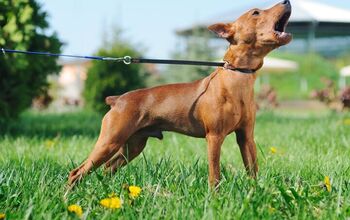
![The 10 Best Table Saws - [2022 Reviews & Buyer's Guide]](https://cdn-fastly.upgradedhome.com/media/2023/07/31/9070645/the-10-best-table-saws-2022-reviews-buyer-s-guide.jpg?size=350x220)
